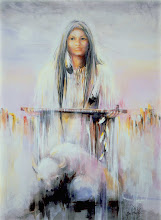I remember several years ago I had gone on tour with a young hip-hop r&b singer along with his all black entourage. I was in the minority as I joined them all in the Bahamas. Our first evening of school having just met my young student, he wanted to work on social studies. Needless to say, the unit was slavery. So here I am in a swank hotel in the Bahamas with my new student, and the subject is an in-depth study of slavery at the 7th grade level. The best I could do at the moment was suggest maybe we work on reading his literature that evening, knowing I'd have to give the subject of slavery some thought. It's a sensitive subject to teach, especially when you're a white teacher teaching a black child, or when many of the kids' parents don't remember the days before civil rights, much less slavery. They never knew separate hospitals, restrooms and water fountains for blacks, no blacks in white restaurants, movie theatres or hotels. It was a different world that my generation grew up in. It is appalling to think a person in the days of slavery would be beaten or deprived basic human rights. But in more modern times "Guess Who's Coming to Dinner" was scandalous to many at the time it premiered in the theatres. That was a time you did not consider dating a black person if you were white. Even churches were segregated, or maybe I should say especially churches.
I recall a minister in rural GA within the last 20 years who was fired because he had given a black family a ride in his car to church. There was much ado about his wife who was a teacher talking to all the black kids at a football game and sitting with them. A Korean artist friend of mine when she first moved to Atlanta back in the 70s recalled her first impression of GA was a huge Klan ralley in South Atlanta. My first trip to Atlanta in 1961 and to the Fox Theatre did not allow blacks to sit anywhere but the top blacony.
I don't know what to say about the current big controversy in Gwinnett about a few test questions a teacher made up to coordinate the social studies lesson on slavery with math. But then is the reenactment of the immigration into NYC back at the turn of the century also questionable. Does that mean a teaacher would be discriminating if she calls to mind the way so many immigrants were discriminated against? Why I recall just a few short years ago, maybe in the mid-90s I heard on a filmset in my own classroom a very dark skinned ten year old child tell a light skinned African American girl of the same age that she would go far, because she was light. Sure enough the light skinned girl has done well in Hollywood. Back then we talked about it a few minutes and how many other things are more important than skin color.
I'm glad I'm not a young teacher beginning my career. I would be afraid to say anything in the classroom. In that I'm sort of obsessive by nature in the first place, I would be so busy making sure everything was politically correct that I would be afraid to say anything except what is in the book. What if I taught my African American unit of poetry as I used to teach and I mentioned the black-faced minstrels? What if I mentioned that Stephen Foster's songs were more accepted because he was white? What if I mentioned remembering eatting at Aunt Fanny's Cabin in Atlanta and young boys buck danced, then came around with jars for tips. What about Mammy's Shanty who had only black waiters but no black customers. What if I mentioned Lester Maddox putting a coffin in front of his restaurant like it was the death of his restaurant if he had to integrate his restaurant, and he went on to be one of our governors. What if I mentioned the black kids on my grandparents' farm back in the 40s who helped their parents pick cotton.
Guess it's good I'm nearing 70, and I won't be have to obsess over every single word.
Subscribe to:
Post Comments (Atom)

No comments:
Post a Comment